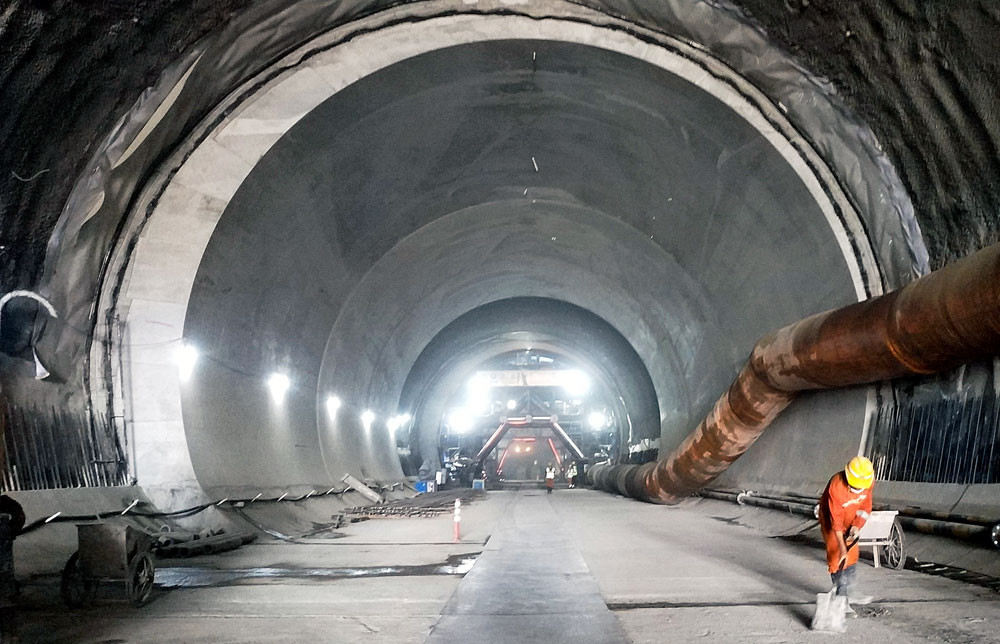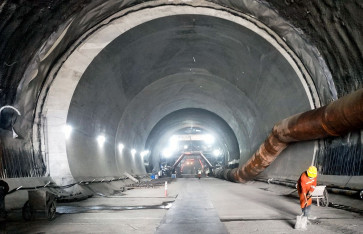Popular Reads
Top Results
Can't find what you're looking for?
View all search resultsPopular Reads
Top Results
Can't find what you're looking for?
View all search resultsAccelerating the $6.07b Jakarta-Bandung high-speed railway project
The 142.3-kilometer Jakarta-Bandung high-speed railway project is expected to become an excellent model of cooperation between China and Indonesia.
Change text size
Gift Premium Articles
to Anyone
T
he 142.3-kilometer Jakarta-Bandung high-speed railway project is expected to become an excellent model of cooperation between China and Indonesia. When Indonesia chose China to carry out the project in September 2014, it was optimistically estimated that the megaproject, which would reportedly cost US$6.07 billion, would be completed by 2019.
However, the project later faced many hurdles and was delayed for more than two years, raising the cost by 23 percent, according to Indonesian officials. This is a sensitive issue for both Indonesia and China. There is no doubt about China’s technology mastery, but in terms of feasibility study and the knowledge about local sensitivity, China needs to pay more attention.
Chinese Foreign Minister Wang Yi assured visiting Maritime and Investment Coordinating Minister Luhut Pandjaitan on June 5 that the high-speed railway project would be completed in 2022 — a big relief for both sides. Hopefully, the two countries can reach a compromise on how the cost overrun can be shared. The success of the project will be a milestone for the two countries and prove that economic cooperation is indeed mutually beneficial.
However, some tend to view China from a hostile perspective because of past experiences. Jakarta froze diplomatic ties with Beijing in the wake of an aborted coup attempt blamed on the Indonesian Communist Party (PKI) in 1965. Diplomatic relations were normalized on Aug. 8, 1990. China is moving closer to becoming the world’s most powerful economy, and this has raised anxiety globally. It is just a natural phenomenon that has happened to other countries, such as the United States and Japan.
With President Joko “Jokowi” Widodo already making plans to accompany Chinese President Xi Jinping on a trial run of the railway in 2022, when the latter is set to visit Indonesia to attend a Group of 20 summit, it is a strong show of assurance that there will be no more delays and that the project will be completed as planned — at any cost.
The President reportedly chose China over Japan for the project because he had learned from his experience as a businessman that Japan tended to be stingy in its transferring of technology to Indonesia. In 2014, it was almost certain that Japan would win the railway project because it had finished its feasibility study with a very cheap, long-term loan.
Japan offered to cover 75 percent of the cost in long-term and soft loans. Its interest rate was just 0.1 percent and the loan term was 40 years. Repayment would start 11 years after the railway started operation. The project was included in Japan’s Official Development Assistance (ODA) program. What bothered Jokowi was Japan’s requirement that the loan be based on a government-to-government agreement, while China offered a business-to-business scheme.


















